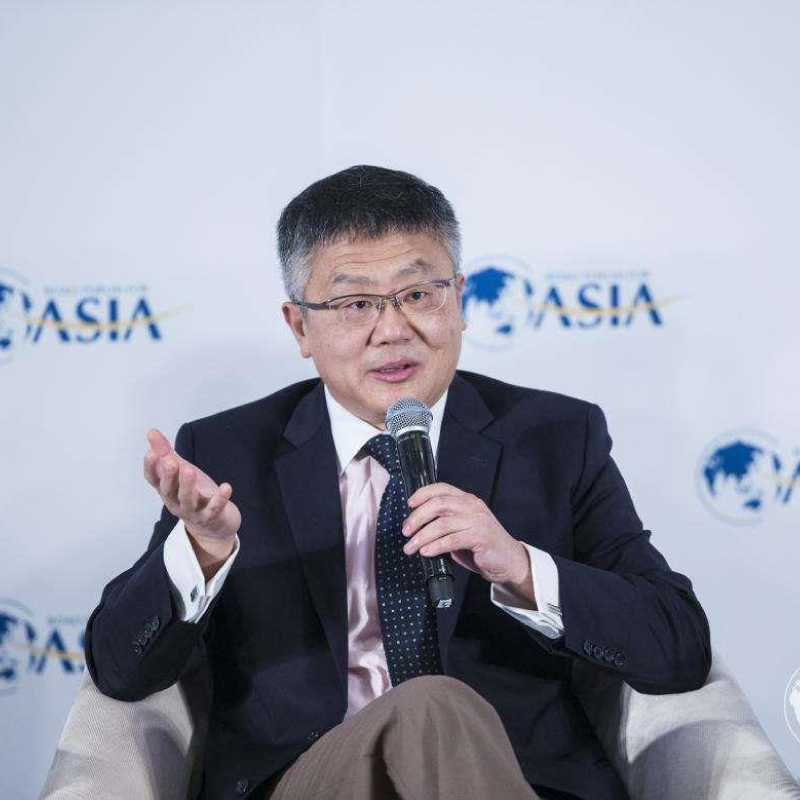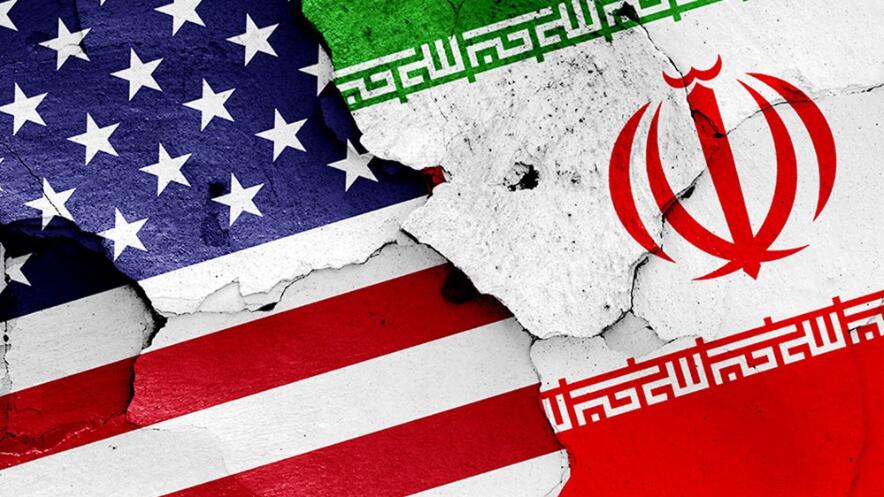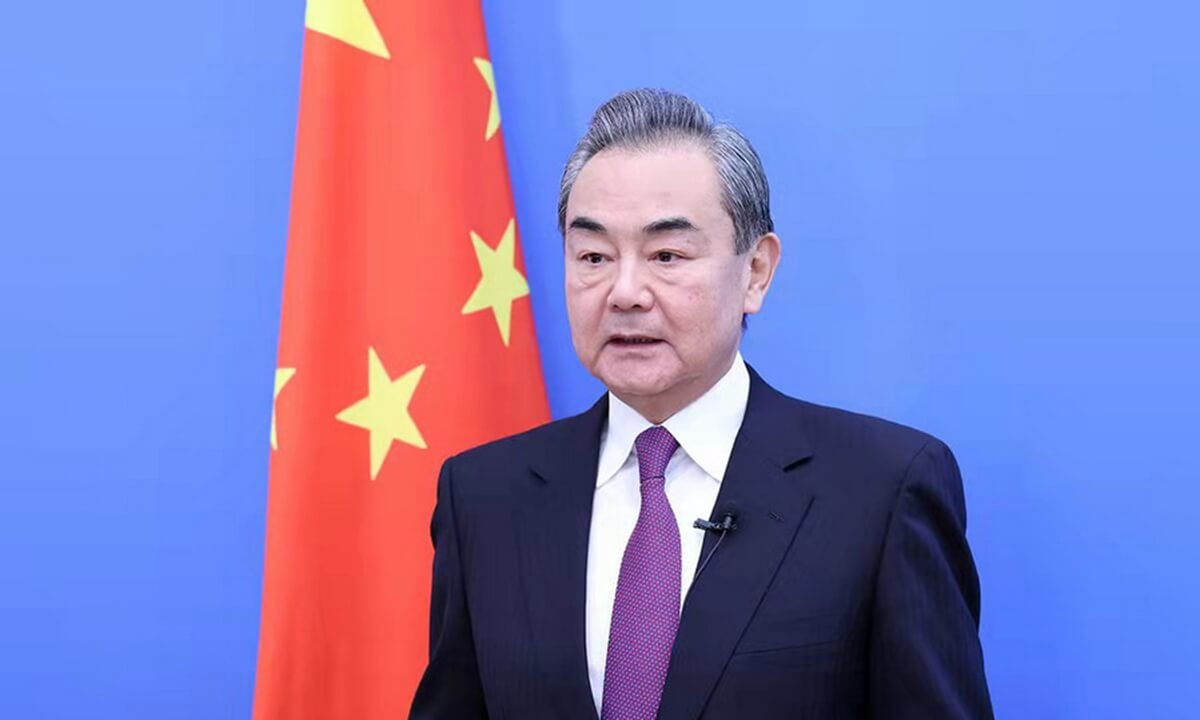
Recently, the leaders of the United States (US), the Republic of Korea (ROK) and Japan convened at Camp David. The trilateral summit produced a joint statement declaring that the three governments will strengthen their alliance and make a concerted effort to maintain security and stability in the region. The statement has impressed the practitioners as well as the general public that a trilateral solidarity has been shaped against China.
But this is not the case through close scrutiny. First, the joint statement is, in essence, only an expression of intent by the three leaders instead of a formal treaty, nor is it backed up by a bill passed by the congress and parliaments of the three countries. Thus, the statement actually expressed the intention of the three sitting state-heads rather that a legally abiding treaty.
Second, days remaining for the three leaders – President Joe Biden, Prime Minister Kishida Fumio, and President Yoon Suk Yeol – in their office are running out soon. Biden is already preparing for his re-election in 2024, and there is no guarantee that he will win; Kishida faces the same situation due to the decline in his domestic support; and Yoon, due to the five-year one-term presidential system, still has three years leftfor his incumbency. Of even greater concern is the fact that all the three countries face great uncertainty in their internal politics. With strong opposition parties, once there is a “change of regime” after the election (which is not unlikely in all three coutries), it remains a question whether the next government will continue to behave as what the opposite head wishes. In this sense, the sustainability of the joint statement – that is, whether it can be transformed into an institutionalized treaty or even concrete policies – remains to be seen.
Third, the statement does not address the structural problems in the trilateral relations at all. It is true that the US dominates in the trilateral alliance. However, given that the US-Japan alliance has global implications, but the US-ROK alliance only plays a role in the regional, Japan enjoys a superior “structural position” over ROK in the trilateral relationship. On the one hand, the Yoon government made major compromises on the issues that involve deep-seated national sentiments and even sovereignty, e.g., the verdicts over comfort women and labor during the Japanese occupation and territorial disputes, in exchange for the support from Japan and the US, with which Yoon wishes to gain an equal status with Japan in the trilateral alliance at least for himself, if not entirely for his nation. However, unless there is a substantial structural change in the three states’ trilateral relations, it remains a wishful thinking for the Yoon administration to gain and sustain an equal status with Japan just by its own effort.
On the other hand, Japan has built on the Koizumi administration’s commitment to national normalization, which promotes the “conservative sidestream” of Japanese politics into the “conservative mainstream”, aiming to gain more autonomy and even equal footing in the US-Japan alliance. Although this effort has been derailed by the assassination of Shinzo Abe, the Kishida government’s timidity does not mean that the mainstream of Japanese conservative forces will give up their pursuit of national normalization. After all, in today’s multipolar world, Japan’s subnormal statehood has increasingly become a shackle to its continuous development. However, the US control over Japan, which is the biggest trophy for the US in Asia-Pacific after World War II, has become the cornerstone for the Asia-pacific security architecture established by the US since the Korean war in early 1950s. Therefore, it is the US that has imposed the substantial constraint on Japan’s effort for national normalization, although both countries have tried to avoid making this difference public.
Fourth, there is a huge geopolitical imbalance between the costs and benefits within the trilateral alliance. The US has maintained an overwhelming dominance in the trilateral alliance in terms of power, influence and leverage for its interest, while Japan and ROK are willing followers, if not entirely obedient subordinates. However, when it comes to the current political situation, their “imaginary enemies” or targets of containment are China, Russia and North Korea, the three neighboring countries that are facing the same security threat from the US-Japan-ROK alliance. Although North Korea is relatively weak, both China and Russia are great powers, and all three countries possess nuclear weapons. Given that Japan and ROK are adjacent to China, Russia and North Korea, should a confrontation take place between the two groups of countries, the US has more strategic options and flexibility than Japan and ROK, which have to bear the brunt of the conflict. In this sense, the substantial imbalance in the distribution of costs and benefits of the trilateral alliance always leads to the challenge of mutual trust and commitment among the three, especially during a crisis. As history shows, this has undermined, and will continue to challenge the solidarity of trilateral relations, especially when there is a change in domestic politics.
Lastly, the world is irreversibly heading towards multipolarity. This trend is particularly evident in Eurasia and Asia-Pacific regions, as evidenced by the recent expansion of the Shanghai Cooperation Organization and BRICS as well as the stalemate in the Russia-Ukraine conflict. As such, the effort to consolidate an exclusive clique such as this trilateral alliance in an open and diversified Asia-Pacific region can only lead to self-isolation. This is not only because the ASEAN, the sole international regime in this region, has repeatedly made it clear that it will not take sides in the China-US “competition”, but also because India has deliberately maintained its non-alignment position in its dealing with Japan, the US and Australia, rather than forming a close alliance in the so called “QUAD”, as deliberately exaggerated by some Western pundits and media. In fact, the Modi government has always been careful to maintain that India is not an enemy of China; and it is also evident that India has been keen to align itself with the Global South major international issues. For instance, the Modi government has firmly refused to join the US-led sanctions against Russia in the Russia-Ukraine conflict. Indeed, from the perspective of development, the US-Japan-ROK alliance is set up essentially for confrontation, for its sole aim is to maintain its own superiority based on the US hegemony in the region as well as in the world. As such, it has to hold down the development of others, even if this effort threatens and undermines the peace and stability of the region. Thus, it will definitely end up with little support, as the overall trend and demand in the region is for peace and development.
Distinguished Professor of Shanghai International Studies University
Source: Briefing Notes on the United States and the Asia-Pacific Region











